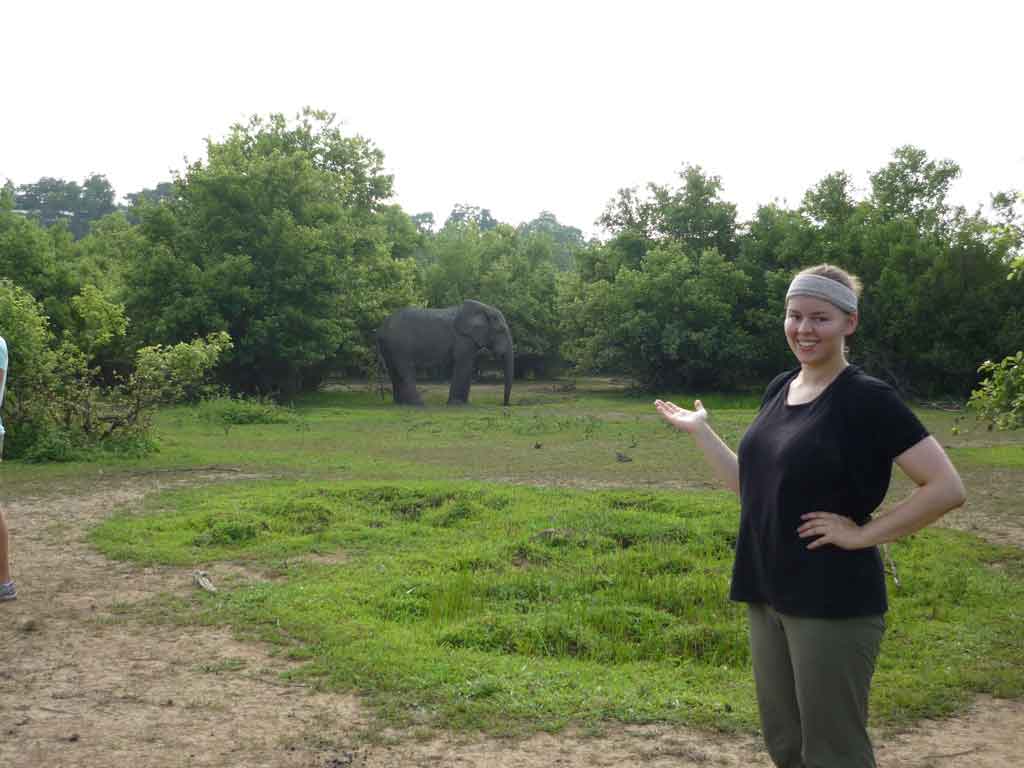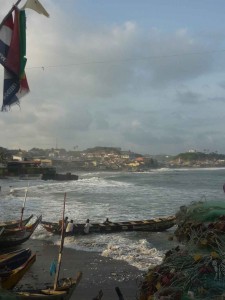By Joe Johnson (The Cascade) – Email
Print Edition: October 22, 2014

Jenna Gloch, a UFV criminology student, sat down with The Cascade to chat about her three-month adventure travelling to Ghana with Youth Challenge International (YCI) this summer. She got back on August 6.
What are some of the challenges that the people in Ghana face?
Well my project, we worked with three different cities and three different topics. We were based on Koforidua. That was our home base and we worked with the environment a lot.
The big issue in Ghana is trash and plastic waste because they don’t have any recycling or garbage programs. So people just throw it on the ground, and that’s normal. It’s … whatever. And then once the trash builds up to an amount where they can deal with it, they just burn it. Land pollution becomes air pollution and it settles in their crops, and in their water, and they eat their pollution and they get sick. It’s just this circle that goes around and around. And then we also talked about HIS and AIDS because that’s a very prevalent issue that they have there. And reproductive health and teen pregnancy, and birth control as well.
Is the primary challenge there the issue with garbage?
Yes, that would be number one. Then I would probably say reproductive health and teen pregnancy … Ghana in general is a very heavily Christian nation, and so sex is something very taboo. You do not talk about that. And so as a result, they don’t educate their young people.
There was this other issue where we were giving a talk to 14- [to] 15-year-olds. My part was on birth control, and I was going to talk about condoms and the contraceptive pill as an emergency backup. The Ghanaian supervisor was forbidding our group to talk about that because young people shouldn’t know about that because they’re not married.
How did you find the people and the culture in general?
They were so wonderful. People always talk about how Canadians are so friendly, and by comparison Ghanaians are 100 times friendlier. They’re very social.
What were the day-to-day tasks like on a workday?
Sometimes we were researching and preparing our workshop or upcoming presentations. Sometimes we were travelling; we were in meetings talking to people, saying, “Can we do a tree planting at your school? Can we workshop?”
There were a lot of days where it was just delivering letters and saying the same thing 14 times over. So, each day was very different in that regard, and that was exciting. We worked Monday to Friday and all five of those days could be different days.
What was the food like there?
Very [few] vegetables there … Lots and lots of rice. Chicken was the main meat. Sometimes fish. Gizzard intestine bits … I didn’t mind that. We were responsible for our own fruit; that wasn’t served at the homestay.
Traditional Ghanaian dishes, though, they had something called Jollof rice. It’s rice simmered in a red tomato sauce for hours upon hours, and that’s very good. They have these two absolutely horrid things, though. One’s called banku and the other’s called fufu.
Any interesting stories?
I saw elephants. That was very cool because I love African animals. We went to Mole National Park for the weekend and Emily, one of my homestay sisters, and I went on this early morning walking safari … we had walked around for about an hour seeing tails disappear around bushes. Then all of a sudden I see grey legs and there they were. We just hung out and followed these elephants around for about an hour and that was really, really cool.
We went to Cape Coast, Elmina, and Cape Coast Castle where the slave trade took place … where the slaves went through the point of no return, and that was very sobering. We saw the dungeons where they kept the prisoners and when we were on the tour the guide said some archaeology students from the nearby university came in and had taken samples from the floor. He said they found such concentrated traces of semen, blood, tears, sweat, feces, it was just like every human bodily fluid, excrement, that they determined that an entirely new layer of the floor had been created and they actually had to dig down to find the original floor.
Do you plan to do more of these trips?
I would. Maybe not through YCI. I don’t know what I want to do with my degree yet, but I know I want to help people, as silly as that sounds. I’m very interested in international issues and third-world countries and human rights. I’ve been interested in the Holocaust and why that happened. There are genocides going on around us today. I would love to go back to another country and help more in that regard.
This interview has been edited for length and clarity.


